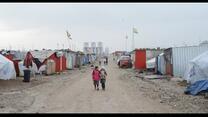"[The IRC's] lending shows that resettled refugee finances are already a safe bet and can be even better with the right support... For refugees, a car means better access to jobs, a larger network, education opportunities, and a greater ability to integrate into American communities faster than before." —Kasra Movahedi, Director of IRC’s Center for Economic Opportunity
The results of the IRC’s research suggest that expansion of socially-minded consumer financing paired with financial education, and other asset-building programs, could help more low-income families achieve financial stability and at the same time reduce the risks the current subprime auto loan market represents to the overall U.S. economy.
Watch a video of a young Afghan refugee in San Diego benefiting from an IRC car loan.


